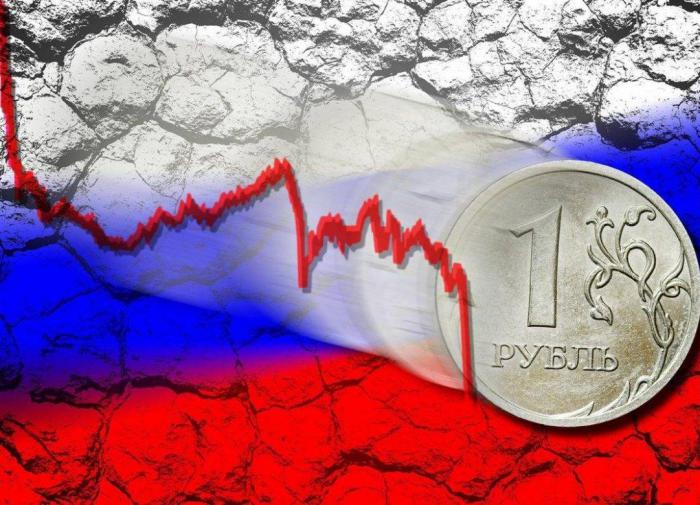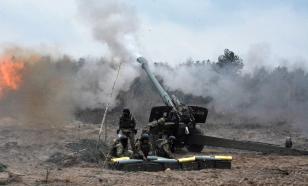Western blitzkrieg failed. Is Russia ready for protracted economic war?
The West sought to conduct an economic blitzkrieg against Russia and throw Russia back to the 19th century, as Joe Biden wanted. Those were vain attempts. Blitzkrieg has turned into a zilch. But the economy must be rebuilt in a new way, in the conditions of a new cold war. It's important that the instructions of the president, the expectations of the population, the practice of actions of the government and monetary authorities do not contradict each other.

At a meeting on economic issues, President Vladimir Putin noted that positive changes were taking place in the country's economy in the face of unprecedented pressure. The ruble exchange rate has returned to the level of the first half of February, the current account balance of the balance of payments has a positive trend, foreign currency is returning to the country's banking system, and the volume of citizens' deposits is growing.
The overall situation is being seriously spoiled by inflation. Over the past month and a half, consumer prices have risen by 9.4%, and in annual terms - by 17.5% (as of April 8).
The President drew the attention of the government and the Central Bank to the need to support citizens. It is difficult for Russians to cope with this inflationary wave. Vladimir Putin instructed the government to prepare specific parameters for the indexation of all social benefits, pensions and public sector salaries. Despite these measures, it is necessary to continue to work on creating new, well-paid jobs, strengthen economic dynamics, develop industry and other industries. The above is the main condition for real growth in the income of citizens.
Restrictions imposed by unfriendly countries had a negative impact on domestic business opportunities. They made the logistics of export and import deliveries more difficult and created obstacles for making settlements. It is necessary to accelerate the transition of foreign trade to settlements in rubles and in the national currencies of countries that are reliable business partners, the President noted in his address to the government and the Central Bank. This is about all foreign trade, and not just about ruble payments for natural gas.
According to many well-known economists, such a measure would be a strong argument in favor of strengthening the Russian national currency.
At the meeting, they spoke about another important direction in the activities of the authorities. Support for domestic demand to avoid its excessive contraction. It is necessary to act both in line with the budgetary system and ensure greater availability of credit resources for business. Central Bank leadership must have its say.
"I know about the discussions that are going on between the Central Bank and the government regarding the budget. In the context of a decline in lending, the budget should actively support the economy, saturate the economy with financial resources, and maintain its liquidity. There are opportunities for this," Putin said.
In the first quarter of this year, a record level of budget surplus was recorded. This makes one think about the need for additional solutions. These decisions should be implemented exactly at the moment when the economy needs it most. Care must be taken not to harm the long-term stability of the financial system at both the federal and regional levels.
Balance of payments and currency anomaly
The figures of Russia's balance of payments for the first quarter of 2022 are mixed. The balance of the current account amounted to $58.2 billion, which is a record value for all the years of the existence of the Russian Federation. A surplus of $240 billion can be predicted if extrapolated to the entire year. This is twice as much as last year.
"A currency anomaly is possible, which will be expressed in huge volumes of foreign exchange earnings inflow into the country. In previous years there was a balance between the inflow and outflow of currency into the Russian economy," Doctor of Economic Sciences Valentin Katasonov said.
Firstly, the money left in connection with the export of capital abroad, which is reflected in the account of financial transactions.
Secondly, the accumulation of foreign currency in the form of international reserves served as a channel for the export of capital for the Central Bank.
Both are somewhat difficult today due to currency control measures taken in a crisis situation.
The trend of a strong deviation towards the inflow of capital into the country will continue until the end of the year. Economist Katasonov names several factors such as:
- maintaining high prices for energy resources in the world market,
- maintaining a sufficiently large volume of Russian exports of natural gas, oil and coal,
- continuation of the downward trend in Russian imports of goods and services,
- reduction of the negative balance of investment income due to the ban on their withdrawal from the country.
Because of these factors, there is an excess supply of foreign currency, which can be claimed only by currency speculators. Valentin Katasonov proposes to direct the current surpluses not to the currency exchange and not to foreign exchange reserves, but to the implementation of a program to strengthen the domestic economy. For example, direct the surplus to import purchases of machinery and equipment needed for reindustrialization or purchase gold on the world market.
It makes sense to establish standards for the timing of the stay of foreign currency received on the account of the exporter, as well as for the maximum amount of currency balances. According to Katasonov, such steps could lead to the introduction of a state currency monopoly in the country.
What the head of the Central Bank did not say
Elvira Nabiullina, the chairwoman of the Bank of Russia, presented her approaches to monetary policy to the members of the State Duma Committee on the Financial Market. Her candidacy was approved for the post for a third term. The head of the Central Bank was rather cautious in her estimates. She promised not to try to reduce inflation by any means, as this would prevent business from adapting. The financial market regulator promises to bring inflation back to the target within a reasonable, foreseeable timeframe, but not too abruptly, in the year 2024.
According to Nabiullina, the Central Bank is going to gradually ease foreign exchange controls and is considering making the sale of proceeds by exporters more flexible.
The financial market regulator will promptly respond to the level of risks and, as they stabilize, lower the barriers to foreign trade activities. Nabiullina promised not to refuse in the near future, but to set up elements of currency control. So that currency control covers risks, but does not interfere with normal activities. She hopes that the country will not return to a familiar situation, when huge amounts of money will flow uncontrollably into offshore.
The period when the economy can live on reserves is finite, the head of the Central Bank noted. At the beginning of the third quarter, Nabiullina predicts the entry into a period of structural transformation and the search for new business models. After such words, I want to exclaim: but in this place in more detail! Unfortunately, this thesis has not received further continuation.
The management of the Central Bank did not provide its views on a number of issues, such as creation of national systems of protection against global risks of financial destabilization, building a universal payment system for the BRICS countries, plans for targeted lending for production growth, subordinating monetary policy to the goals of modernizing high-tech industries, import substitution in industries with a huge multiplier effect, and much more. But the time is not now.
Subscribe to Pravda.Ru Telegram channel, Facebook, RSS!


